|
On May 24 the entire Slavonic community commemorates Saints Cyril and Methodius and celebrates the Day of Slavic Writing and Culture. It is especially solemnly celebrated in Bulgaria with festive marches of Cyrillic alphabet and iconic images of the Saint Brothers. Since 1991 the day was proclaimed the official holiday in Russia and since then has been extensively celebrated in this country too.
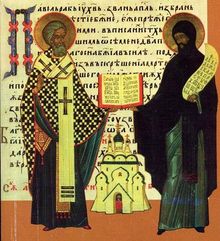
It is difficult to overestimate the significant role of writing for the human civilization development. The language as mirror reflects the entire world and our life.
The opportunities the writing provides cannot be restricted either by time or distance limits. However, it was not always that people were able to write. This art had been developing for a long time through many thousands of years.
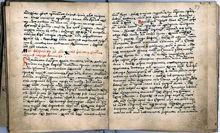
Thus, the Greeks developed their own alphabet based on Phoenician writing and improved it introducing special signs defining the vowel sounds. The Greek writing laid the foundation for the Latin alphabet, and in the 9th century the Slavic writing was first developed using the letters of Greek alphabet.
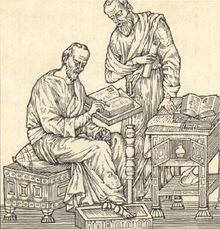
The two brothers Cyril and Methodius were born in the 9th century in Thessaloniki. In 862, both brothers were to enter upon the work which gives them their historical importance. That year the Prince Rostislav of Great Moravia requested that the Emperor Michael III and the Patriarch Photius sent missionaries to evangelize his Slavic subjects.
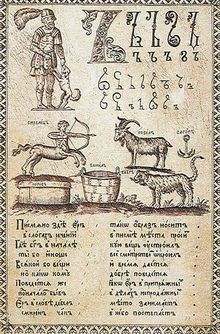
Konstantin (Cyril after taking the vows) and Methodius travelled to the Slavs to devise Slavic alphabet which later was called Cyrillic. The credit in this affair goes to Cyril primarily, as for Methodius, he was his right-hand man. The alphabet composed by Cyril was suited to match the specific features of the Slavic language.
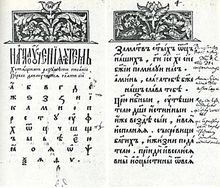
This is how the event is described in the Tale of Bygone Years, the main document of the Old Rus. Once Slavic Princes Rostislav, Svyatopolk and Kocel sent the ambassadors to Emperor Michael:
"Our land is baptized but we have no teacher to guide us and explain the sacred books. We know neither Latin nor Greek; we know neither letters, nor their meaning. Send us the teachers who could reveal the book words and their meaning to us".

Then Emperor Michael "sent the two scholars, Brothers Cyril and Methodius, to the Slavic land to Rostislav, Svyatopolk and Kocel. When the brothers arrived, they devised the Slavic alphabet and translated the Apostle and Gospel".
Origination of Slavic writing dates back to 863.

However, there were some people who reproved the Slavic books and used to say that "no people must have their own alphabet except for Jews, Greeks and Latins like in Pilat?s inscribing who had left it in the cross of God in these languages only".
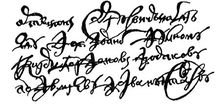
To protect the Slavic alphabet the brothers Konstantin and Methodius travelled to Rome. The Roman bishop condemned those who were murmuring against the Slavic books: "Let the word of the Bible come to life: 'Let all peoples praise the God!' which means that every people can pray the God in its native language". This is how he affirmed the sacred service in native language.
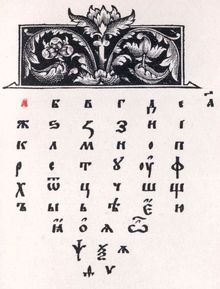
When being read in Old Slavic the words are pronounced exactly as they are written. The discordance between the sounding of words and their pronunciation is not characteristic for Old Slavic as it is in English and French. Bookish Slavic (Old Slavic) was widely spread as the common language among many Slavic nations. It was used by Southern Slavs (Bulgarians, Serbs, Croats), Western Slavs (Czechs, Slovaks) and Eastern Slavs (Ukrainians, Belarussians and Russians).
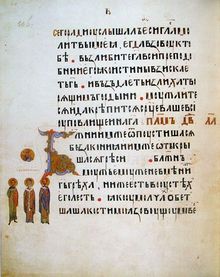
On May 23 in the contest of celebrations dedicated to the Days of Slavic Writing and Culture on the threshold of the SS. Cyril and Methodius Day the Contemporary Museum of Calligraphy is presenting a new exposition «Slavic writing. Origination, history and development».
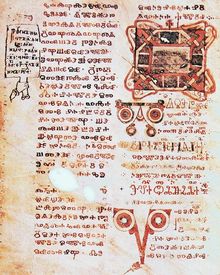
The visitors will be able to learn more about the history of Slavic writing and various types of handwritten Cyrillic: Uncial, Half-Uncial, Short Hand and Ligature and participate in calligraphers` master-classes.
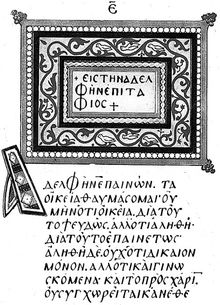
|

